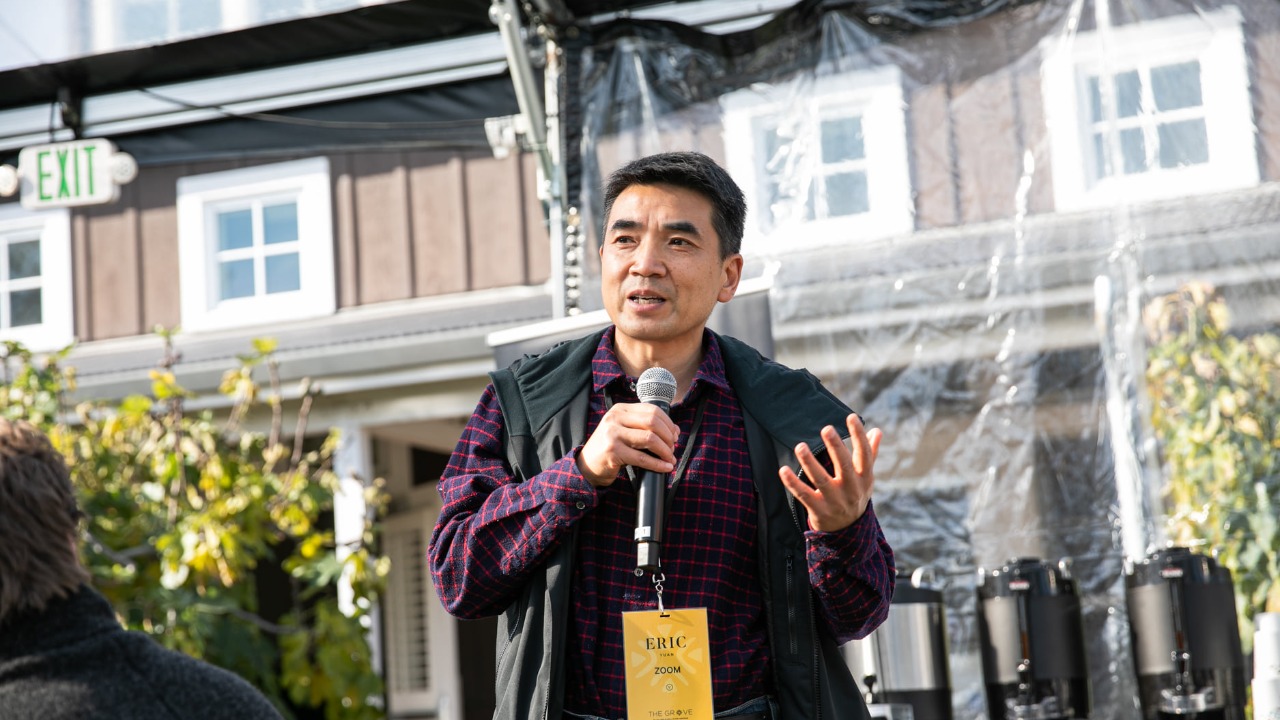
Zoom CEO Eric Yuan has made a bold prediction that advancements in artificial intelligence (AI) will dramatically reduce the standard workweek. Yuan believes that AI could potentially cut the workweek to as few as three or four days by automating routine tasks and boosting efficiency. This vision builds on his earlier comments where he first suggested that AI could enable a four-day workweek.
Eric Yuan’s Core Prediction on AI and Work Reduction
Yuan’s assertion that AI will shorten the workweek to four days is grounded in the belief that automation can handle repetitive tasks, thereby maintaining productivity levels. This idea was first expressed in his September 2025 comments. More recently, in October 2025, Yuan expanded on this view, stating, “We do not need to work 5 days a week anymore,” suggesting that AI could reduce work to three or four days. This quote was taken from his recent interview.
Examining the timeline of Yuan’s statements, there is a clear progression from general AI benefits in September 2025 to specific reductions in late October 2025. This progression reflects an increasing confidence in the potential of AI to reshape our work schedules.
How AI Enables Shorter Workweeks According to Yuan
Yuan explains that AI will automate mundane jobs, allowing humans to focus on creative work and thus shorten the overall workweek to four days. This concept was outlined in his 2025 prediction. He further highlights the role of AI in increasing efficiency to support a three-to-four-day structure, directly referencing his October 2025 statement on eliminating the need for five-day schedules.
Furthermore, Yuan views AI’s potential to redefine daily workloads as a significant factor in achieving shorter workweeks. This perspective is drawn from his September 2025 remarks about broader productivity gains.
Benefits of a Four-Day Workweek in Yuan’s Vision
Improved work-life balance is a key outcome of Yuan’s vision. He predicts that AI-driven reductions to four days will enhance employee well-being without output loss, as per his October 2025 comments. Yuan also noted in September 2025 that AI could make shorter weeks feasible by handling routine tasks more effectively, potentially boosting overall productivity.
Reduced burnout and higher job satisfaction are other potential benefits of a shorter workweek. These tie back to Yuan’s quote from late October 2025, emphasizing the obsolescence of five-day weeks.
Extending to a Three-Day Workweek Possibility
Yuan’s forward-looking prediction that AI could push workweeks down to three days in the near future was shared in his October 2025 interview. This contrasts with his initial four-day focus from September 2025, illustrating how evolving AI capabilities might accelerate the timeline.
The quote “We do not need to work 5 days a week anymore” serves as evidence of Yuan’s confidence in a three-to-four-day range. This confidence is linked to recent reporting on the topic.
Zoom’s AI Strategy Supporting Yuan’s Outlook
Zoom’s own AI tools, like meeting assistants, align with Yuan’s workweek reduction ideas by saving time on administrative tasks. This alignment is implied in his 2025 statements. Furthermore, Yuan’s September 2025 prediction connects Zoom’s platform enhancements to broader AI adoption, suggesting that technology could enable shorter weeks.
The integration of AI in Zoom’s ecosystem is a practical step toward Yuan’s vision. This is drawn from October 2025 coverage of the topic.
Broader Implications for the Workforce
Yuan’s general workweek shortening forecast from September 2025 suggests potential economic impacts, such as job shifts due to AI automation. Societal changes like increased leisure time from a four-day model are also echoed in Yuan’s October 2025 remarks.
Policy considerations for implementing shorter weeks are informed by Yuan’s four-day workweek advocacy in late October 2025. These considerations will be crucial as we navigate the potential transformation of our work schedules in the era of AI.
More from MorningOverview